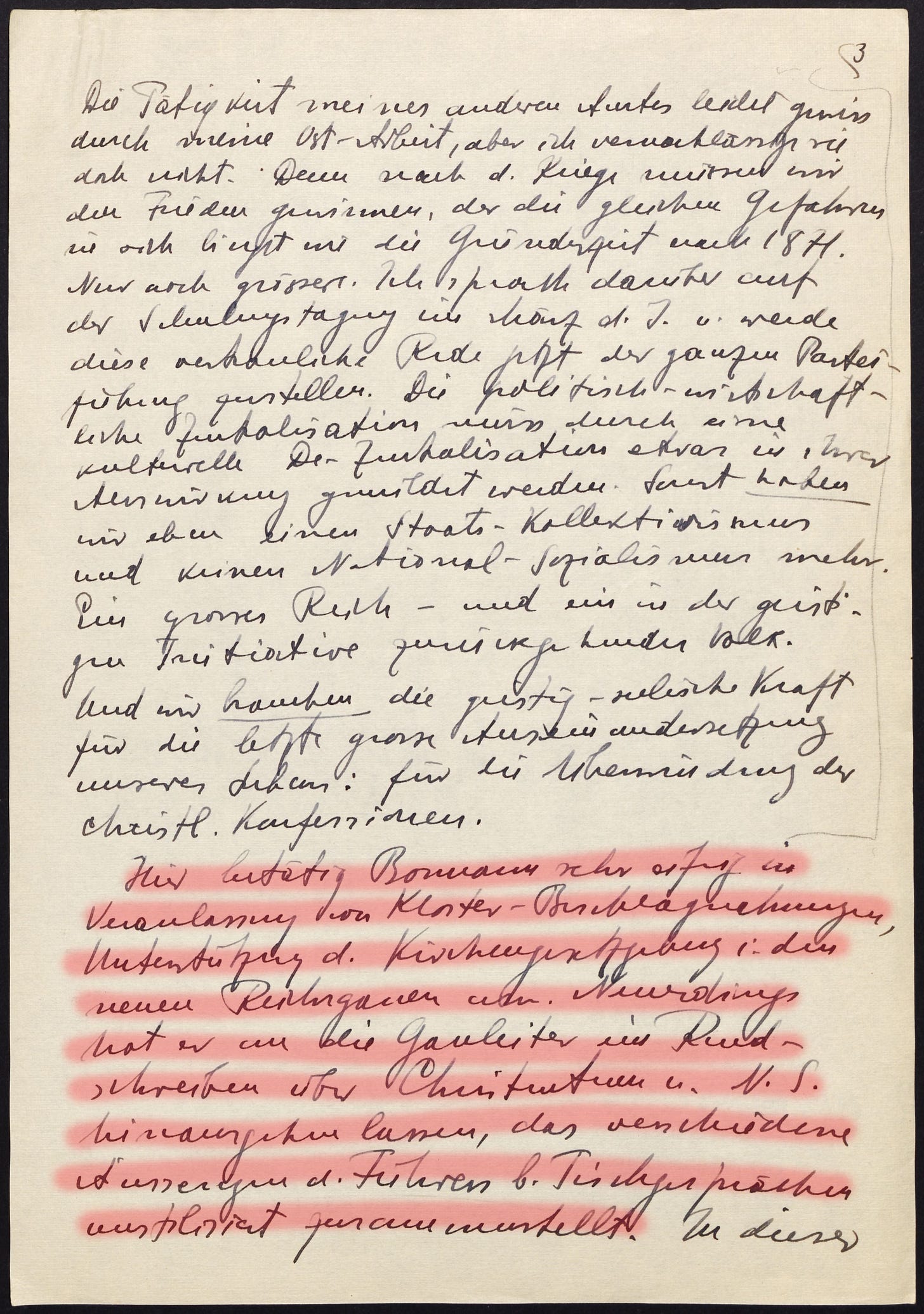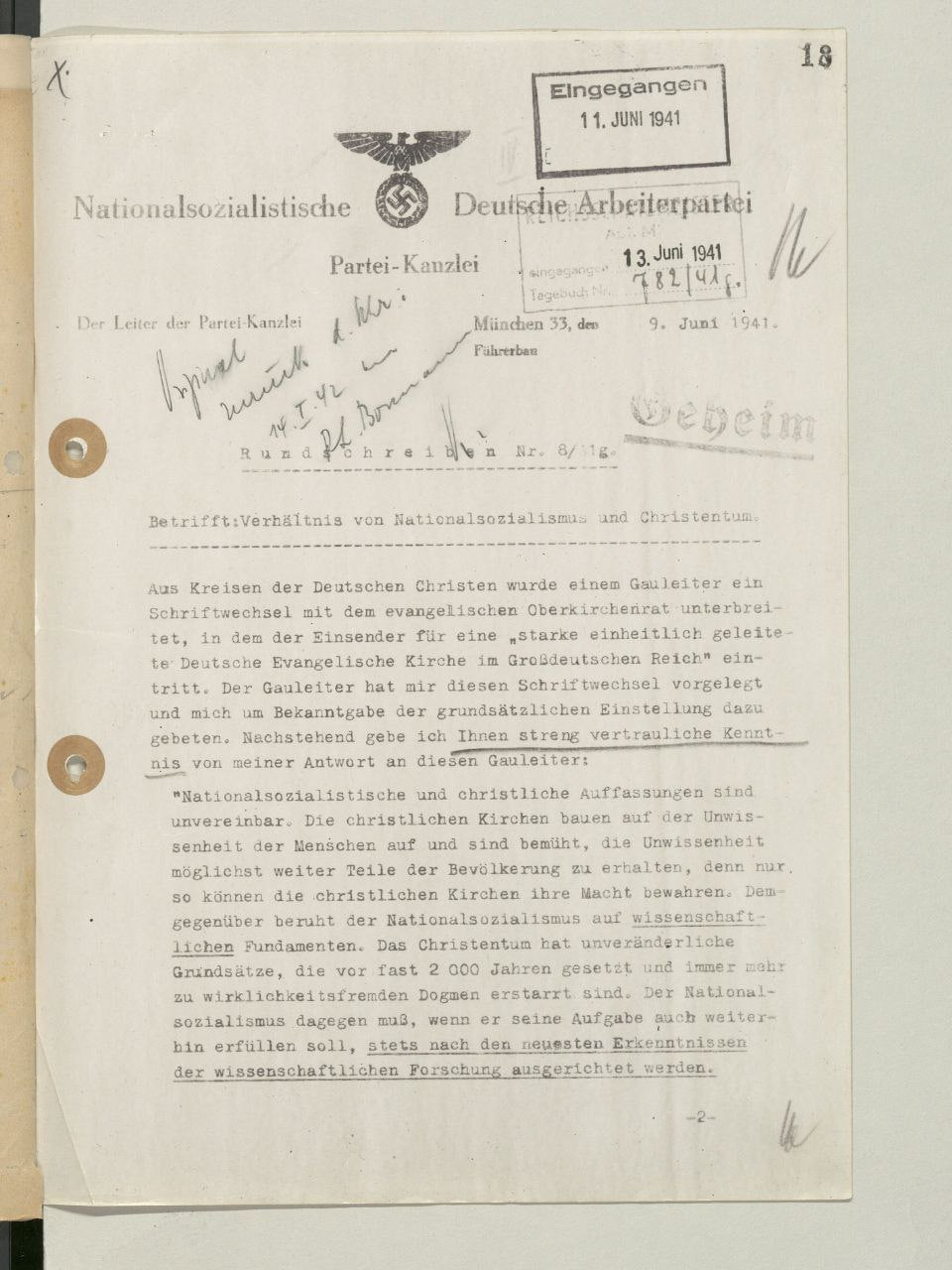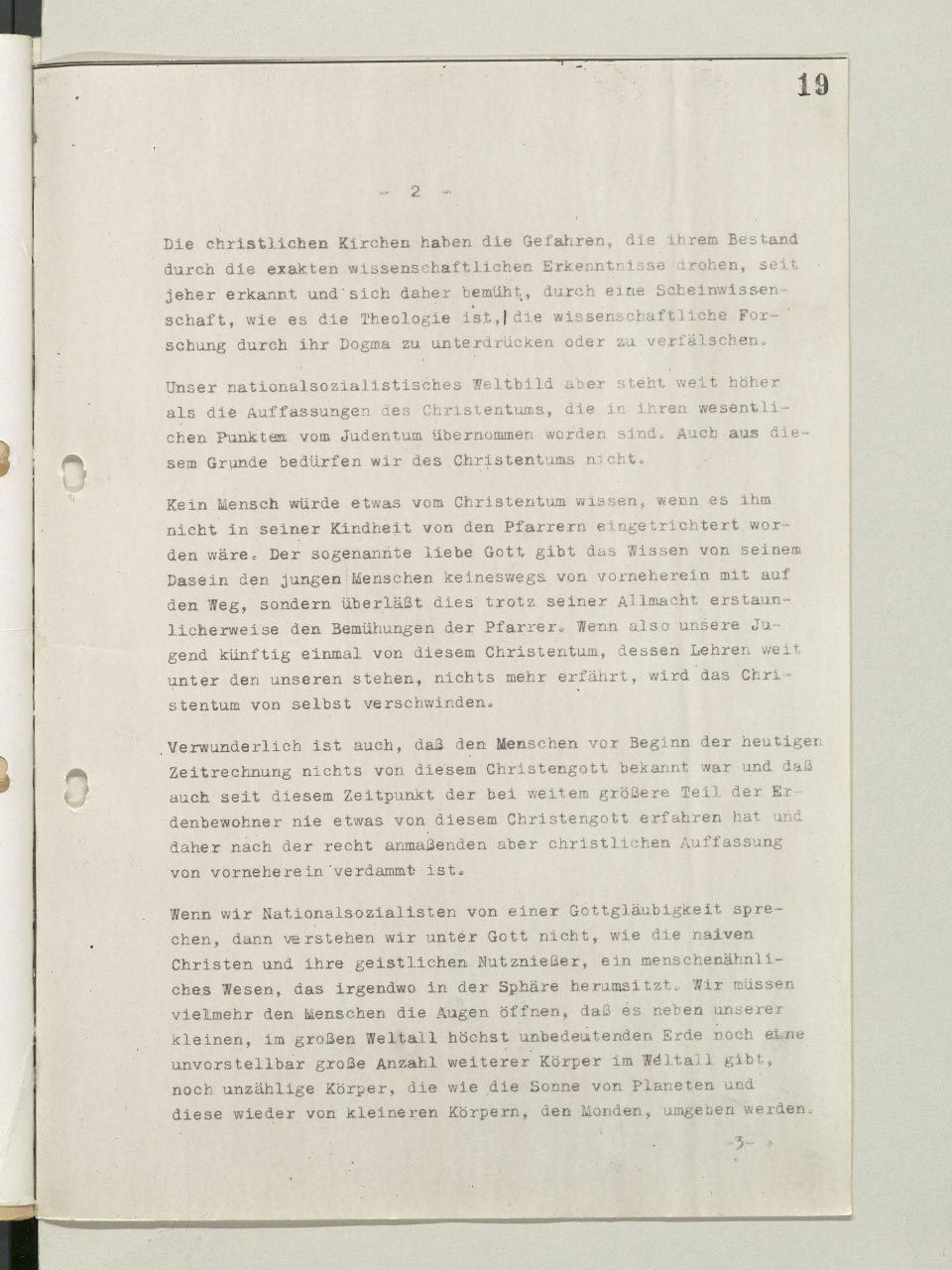Yet another source corroboration
On September 7th of 1941, Alfred Rosenberg wrote the following in his his diary:
“Under Bormann’s direction [I am] very often in meetings on monastery confiscations, [and in the] sub-department for church matters; about new regulations, etc. Recently he (Bormann) had a circular issued to the Gauleiters on Christianity and National Socialism, which completely compiles various statements of the Führer made during table talks.”
Note that Rosenberg explicitly says that the views communicated in this document from Bormann were reflective of Hitler’s beliefs as expressed in his evening Table Talks (Tischgespräche). This aligns with what we have from those records.
That referenced document from Bormann was a circular from the Head of the Party Chancellery to all Gauleiters (natsoc district governors) regarding the relationship between National Socialism and Christianity from June of 1941.
Here is that document:
Subject: Relationship between National Socialism and Christianity
From circles of the “German Christians,” a Gauleiter received a written exchange with the Evangelical Oberkirchenrat (Supreme Church Council) in which the sender advocates for a stronger affiliation of the “German Evangelical Church in Greater Germany” with National Socialism.
The Gauleiter showed me this correspondence and asked me for a statement on the fundamental position regarding this matter.
Below I give you strictly confidential knowledge of my reply to this Gauleiter:
“National Socialist and Christian conceptions are incompatible. The Christian churches are built upon the ignorance of mankind, and they strive to maintain this ignorance as much as possible, for only then can they preserve their power.
In contrast, National Socialism is based on scientific foundations.
Christianity has laid immutable principles that have remained unchanged for almost two thousand years and have increasingly become rigid dogma.
National Socialism, on the other hand, must always fulfill its mission by orienting itself according to the latest scientific knowledge.The Christian churches have recognized the dangers threatening their existence from exact scientific discoveries since time immemorial and have therefore tried, through pseudo-science such as theology, to suppress or falsify scientific research that contradicted their dogma.
Our National Socialist worldview, however, stands far higher than the views of Christianity, which in their essential points have been taken over from Judaism.
For this reason as well, we have no need of Christianity.No one would know anything about Christianity if it were not instilled in people during childhood by the clergy.
The so-called ‘Christian God’ gives no knowledge of His existence to young people on His own; rather, despite His alleged omnipotence, He astonishingly leaves this task to the efforts of the pastors.Once our youth are no longer instructed about this Christianity - whose teachings are far removed from our own - Christianity will disappear of itself.
It is also remarkable that mankind, before the beginning of our present era, knew nothing of this Christian God, and that even since that time, by far the greater part of the earth’s inhabitants have learned nothing of Him - and thus, according to the presumptuous Christian view, are already damned from the start.
When we National Socialists speak of a belief in God, we do not mean, like the naive Christians and their clerical exploiters, a being who resembles man and roams somewhere in the heavens.
We mean, rather, the law-governed order of the universe:
that in the great cosmos, beside our tiny and utterly insignificant earth, there exist an unimaginable number of other celestial bodies;
that bodies such as our sun are surrounded by planets, and these again by smaller bodies, the moons.”
So not only do we have Rosenberg affirming that he believes Bormann’s words here reflect Hitler’s views, we have corroboration between what was knowledge of Hitler’s views on religion in the Table Talks (Tischgespräche) and yet another contemporary source.
As I’ve expressed before to interlocutors, the convergence between these documents makes alternative explanations highly implausible; the most reasonable conclusion is that they authentically reflect the beliefs of those who composed and circulated them.





